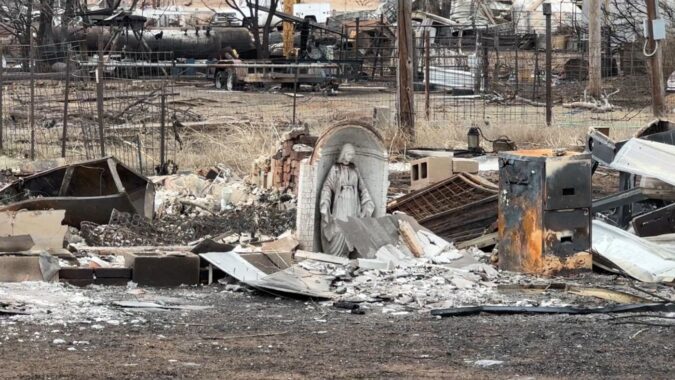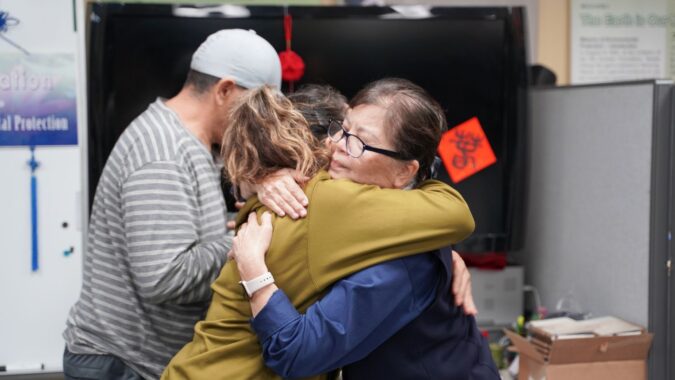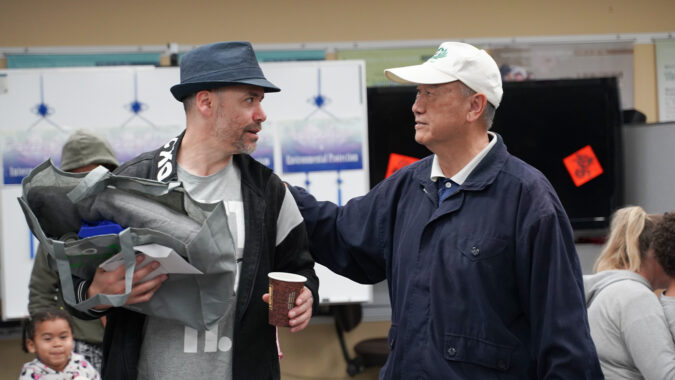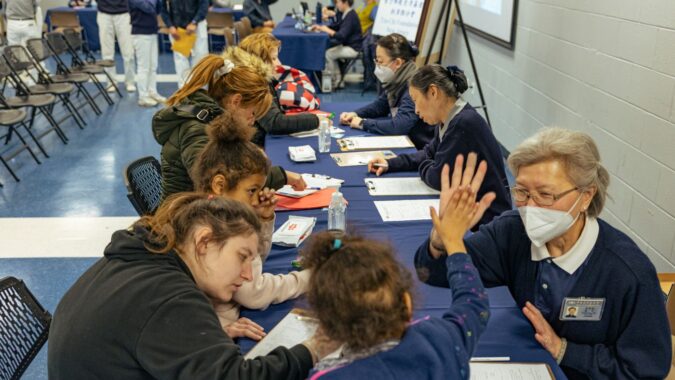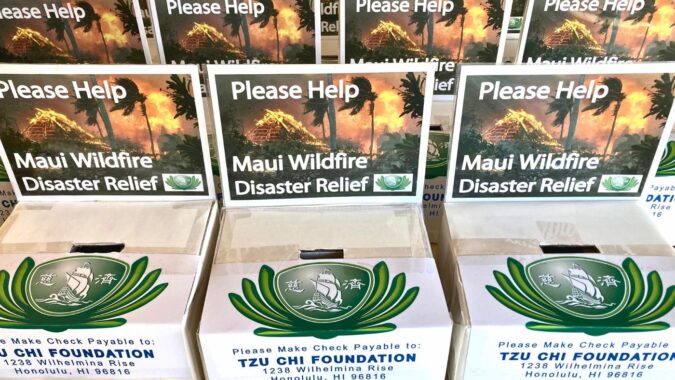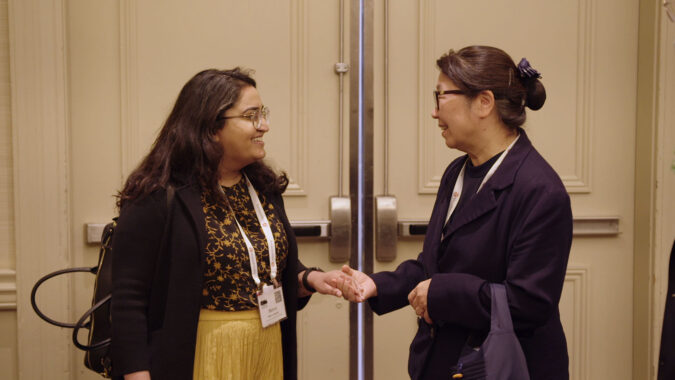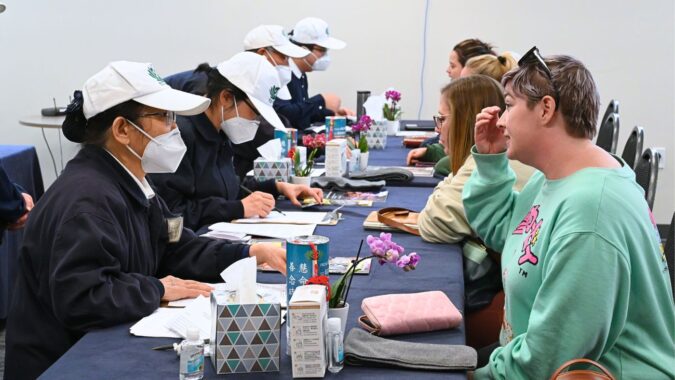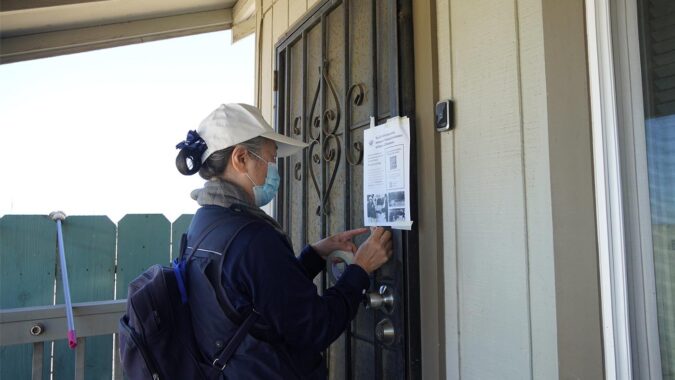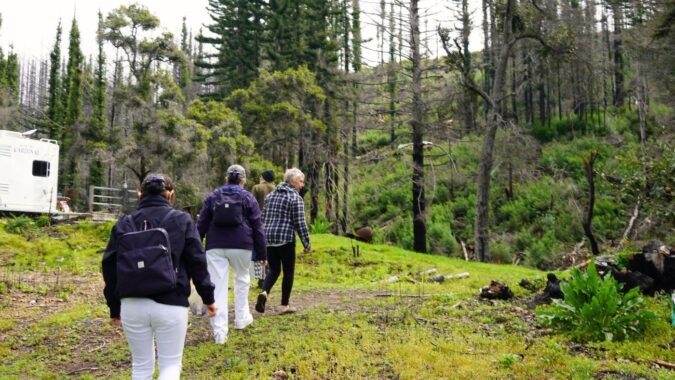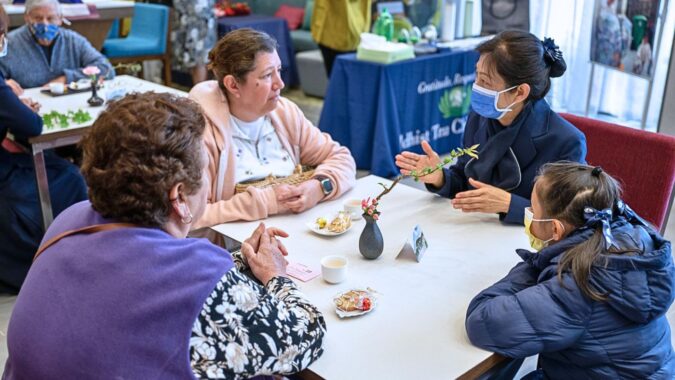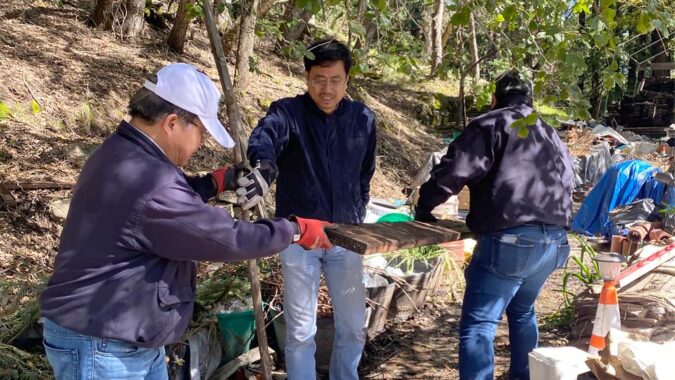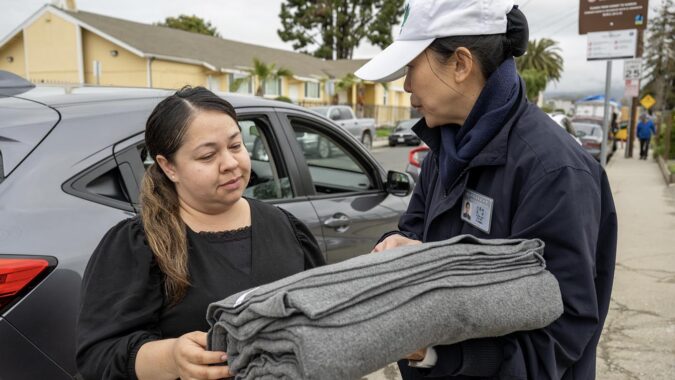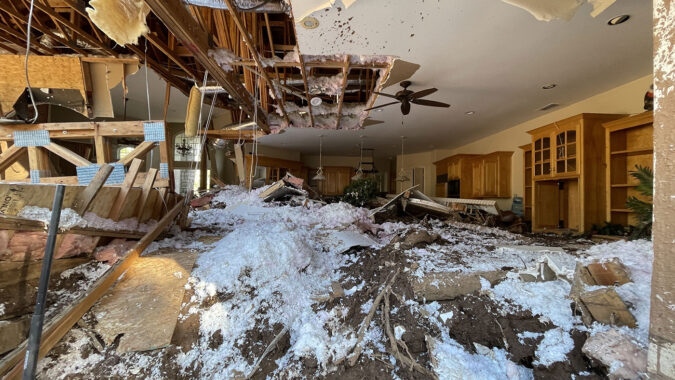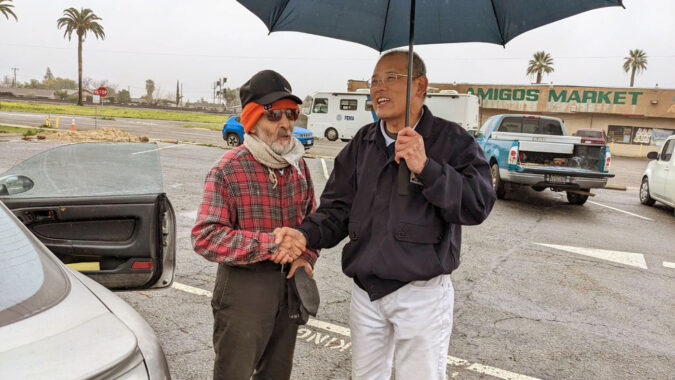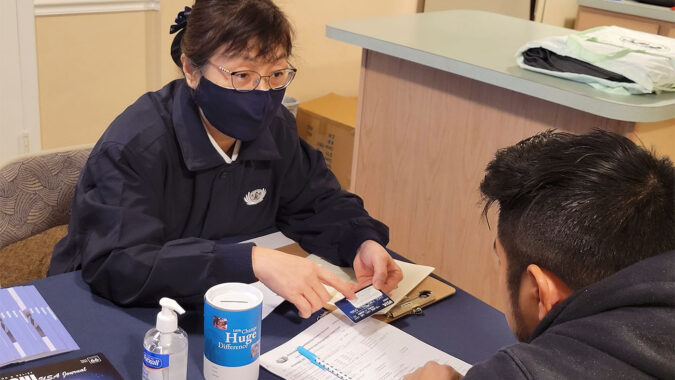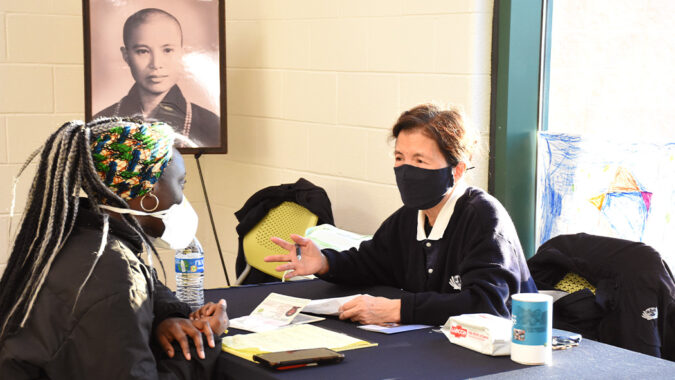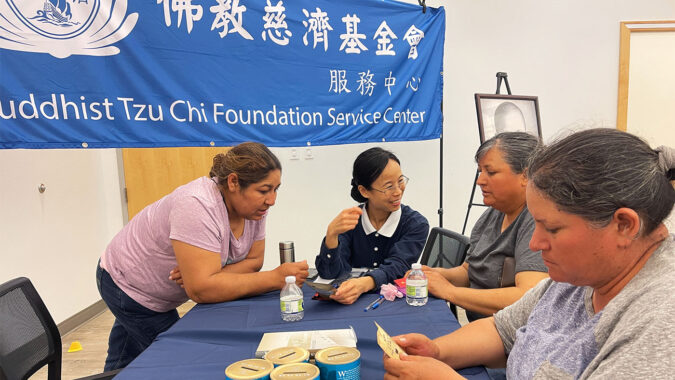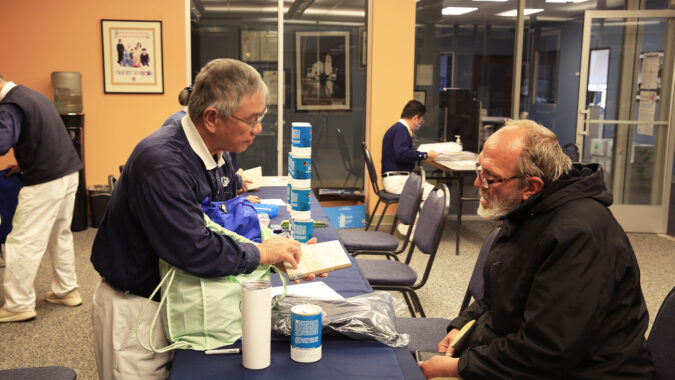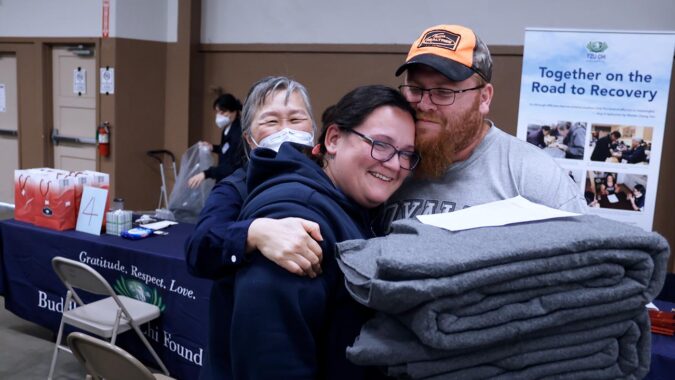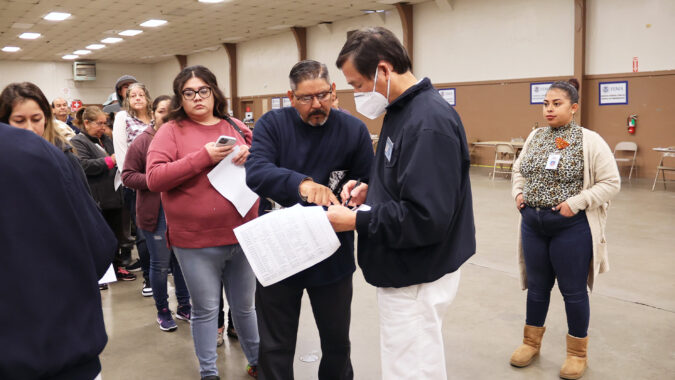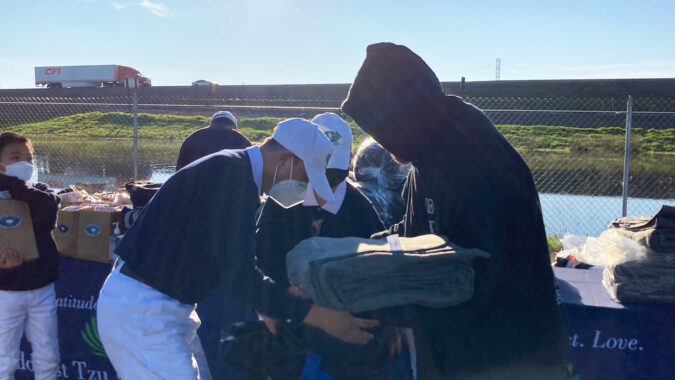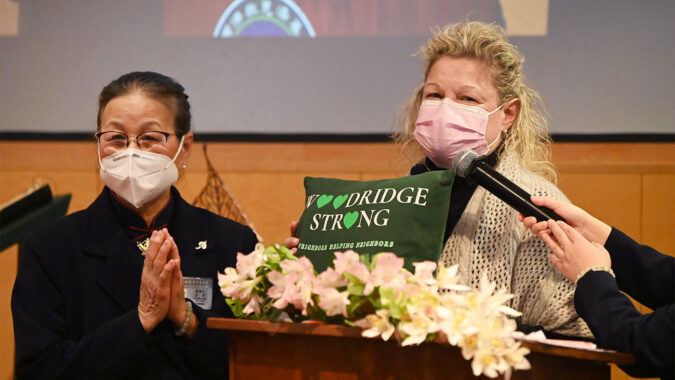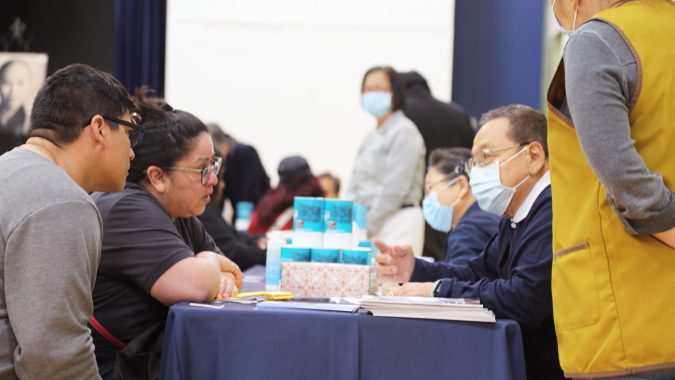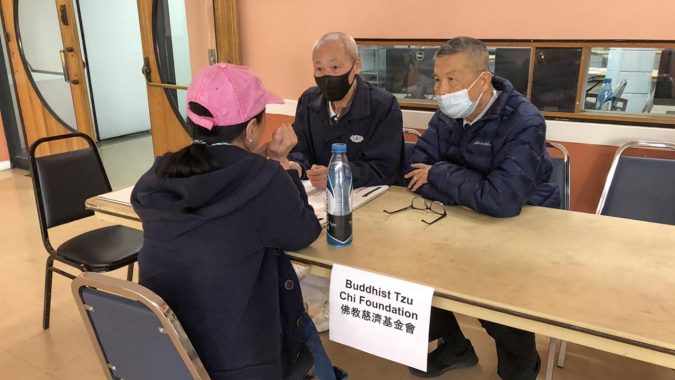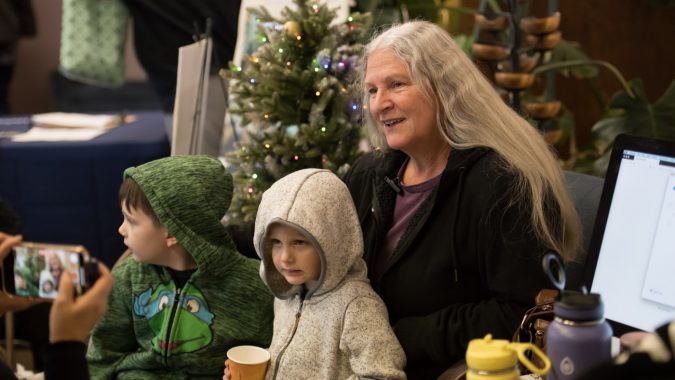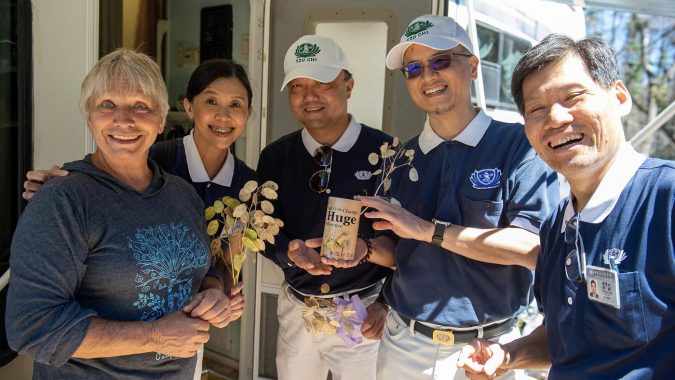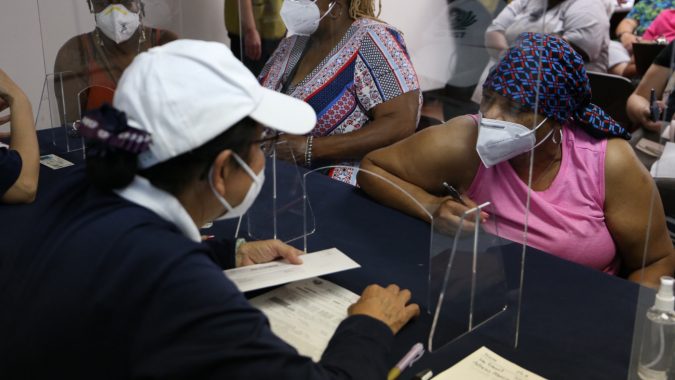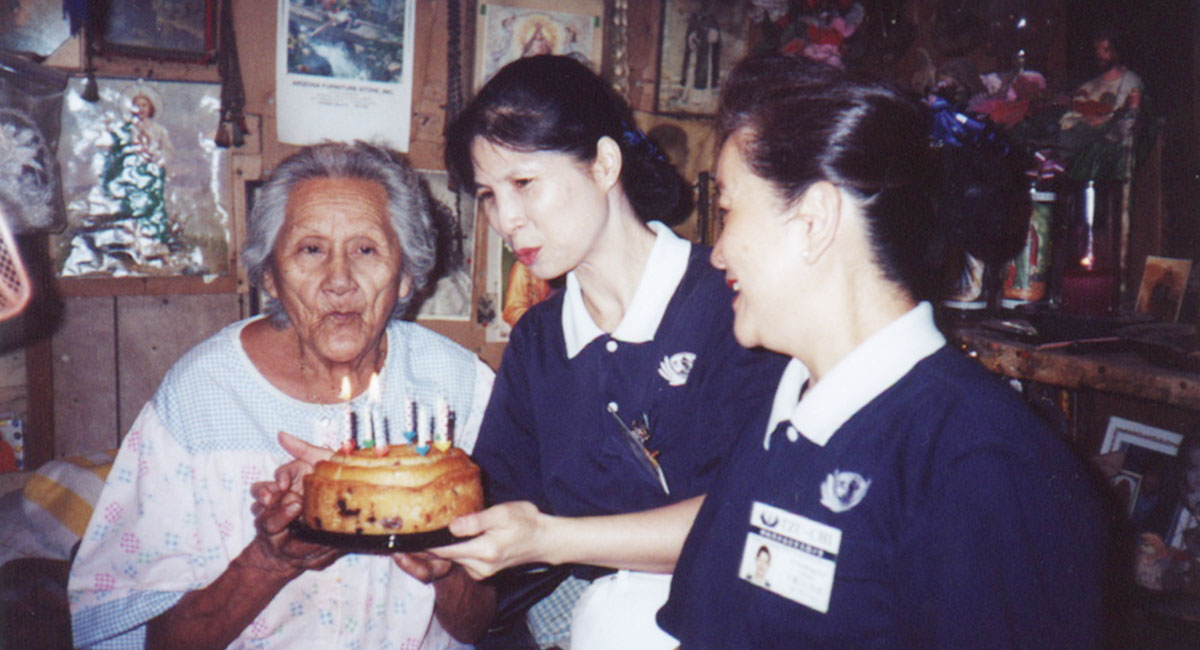
Written by Pheel Wang
Translated by Diana Chang and Penny Liu
Edited by Ida Eva Zielinska
Photos provided by Phoenix Service Center
In Arizona, there’s a unique town called Guadalupe, located less than 10 miles from the city of Phoenix, the state capital. Most of the residents in this town, one of the smallest in Arizona, are Latino or Native American – particularly from the Pascua Yaqui Tribe. And, although many people in the area are well-to-do, one-third of the population lives in persistent poverty.
Since the establishment of Tzu Chi USA’s Phoenix Service Center in 1996, volunteers have been helping households in need in Guadalupe and providing charity aid for long-term care cases when referred by social workers assisting people from the Pascua Yaqui Tribe. However, in 2020, given the COVID-19 pandemic, the needs of this Native American community were different.
Alma Valenzuela, a social worker, had contacted Tzu Chi USA’s Phoenix Service Center about charity food aid. At the same time, she shared that Pascua Yaqui Tribe elders, as well those serving the community – social workers, legal consuls, and healthcare staff at a clinic – were in dire need of masks to prevent the spread of COVID-19.
Volunteers immediately prepared the vital personal protective equipment (PPE) for delivery to the tribe. And as they did, they remembered an individual care case dating back almost 25 years ago. It was that of an elderly Pascua Yaqui lady, whom they met in 1996, soon after the service center opened, when they began visiting Guadalupe, aiming to help those in need.
Facing Difficulties With Positivity and Courage
When Tzu Chi volunteers first visited the Pascua Yaqui community in Guadalupe, they found people living in run-down houses patched together with pieces of wood or cardboard and surrounded by trash. The residents also had to contend with snakes and scorpions sneaking in through the make-shift walls of their homes, hiding in mattresses or under the sheets.
As they walked past foul-smelling trash with a social worker, visiting one family after another that needed help, the volunteers were incredulous, thinking, “How can this happen in America?” They then approached a run-down ruin, and just as they were assuming it was merely a pile of trash, the social worker led them to the entrance of a dwelling, inside which lived a diabetic elderly lady with her daughter and three granddaughters.
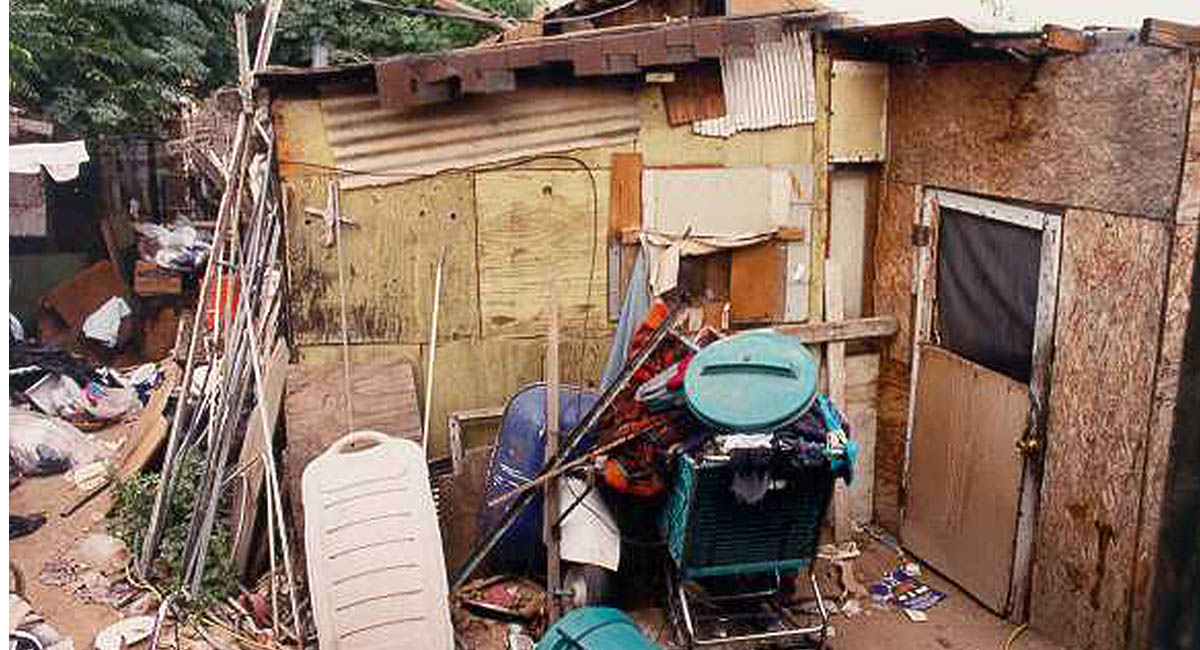
The interior of the house was in even worse condition than its outside. The patchy roof leaked when it rained, and without insulation, the dwelling grew uncomfortably hot in the day, baked under the desert sun, and severely cold at night and during winter. That, on top of the structure appearing as if it could collapse at any moment.
When the volunteers entered the house, they expected to find an anxious senior, but someone who was the complete opposite greeted them, instead. Despite the humble living conditions, this grandmother maintained an optimistic view of life, strengthened by her faith in Jesus and the Virgin Mary, portraits of both by her bedside.
Her content smile revealed how she could not be defeated by illness or poverty, her spirit innately strong and generous, as is often the case in Native American culture. They learned that she was known to help others, sometimes sheltering as many as 15 people, those needing help even more than she, under her flimsy metal roof.
Nonetheless, her positive attitude could not erase the fact that her home environment was challenging and hazardous. The family made their living by collecting recyclables, which they stored in a haphazard way inside and around the cabin. This crowding created a considerable risk for fire and made moving around difficult.
The cramped space also offered ample hiding places for scorpions, and Grandma had survived being stung on more than one occasion. Without complaint, she would then limp to the refrigerator to get milk (a home remedy) and return to her bed to cover herself from head to toe and sweat the poison out.
This brave lady was dealing with significant medical issues too. With advanced diabetes causing ulceration and swelling on her feet, she had a hard time getting on and off her bed or sitting on a toilet, but no one was home during the day to assist her. Consequently, she had already fallen a few times. Although she had government health insurance for medical emergencies, this elder required other assistance, which is what Tzu Chi volunteers began providing after they met her.
Tzu Chi’s aid included regular provisions of food, as well as donations of clothing, blankets, mattresses, bedsheets, kitchen utensils, and cleaning supplies. Volunteers also attended and brought gifts for birthday celebrations, as well as offered moral support when needed. In return, grandma would grasp their hands tightly and share her thoughts, feelings, and wisdom, treating the volunteers with great warmth, as if they were her children or grandchildren.
However, despite their best efforts, the volunteers caring for this lady couldn’t shield her from a string of misfortunes. First, the daughter with whom she was living, who also had diabetes, suffered a medical emergency, when complications of the disease led to the amputation of two toes. Subsequently, both mother and daughter had mobility problems, and the household’s economic security was affected.
Next, one day in 2001, the city issued a warning about the condition of their dilapidated cabin, a home constructed without a building permit. Taking their accumulating challenges into account, Tzu Chi USA undertook to build a house for the grandmother and her family, offering her the safe environment she deserved and needed.
From Shelter in a Shack to Life in a Safe and Permanent Home
Throughout the fall of 2001, Tzu Chi volunteers worked on preparing the site and constructing a new home for this Pascua Yaqui grandmother and her family. First, they had to clear the dwelling and surrounding yard of junk, which ended up filling three containers. Next, they pried open the walls, only to face dozens of scorpions scampering out.
The most challenging part of the venture wasn’t even the danger of scorpions, but working in the extreme heat, with temperatures often reaching over 100 in Fahrenheit. Still, the team persevered.
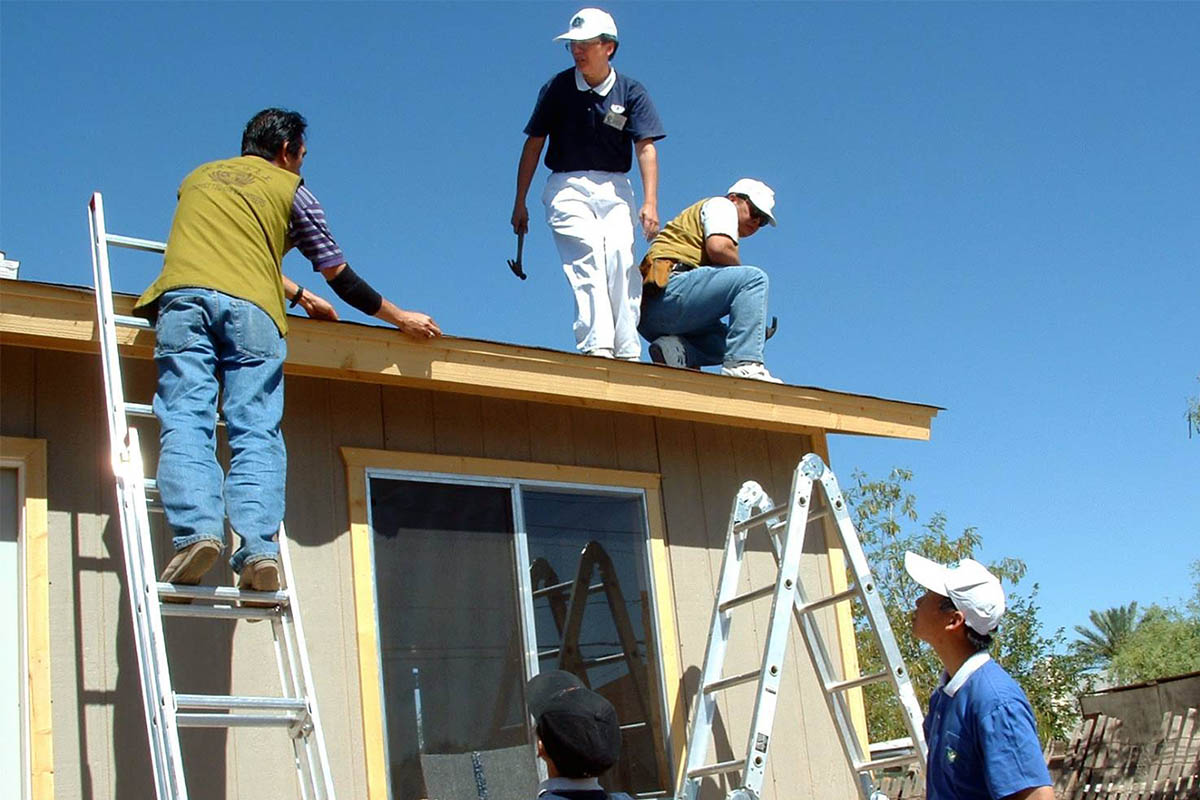
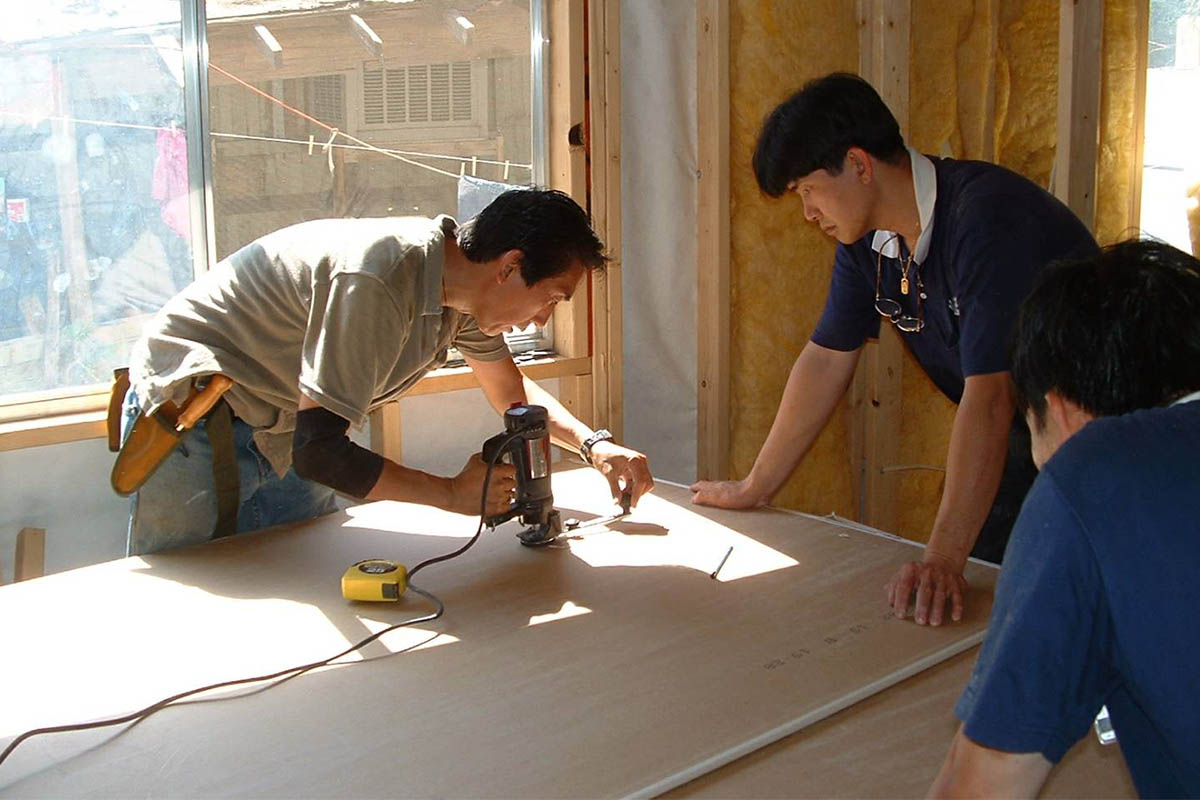
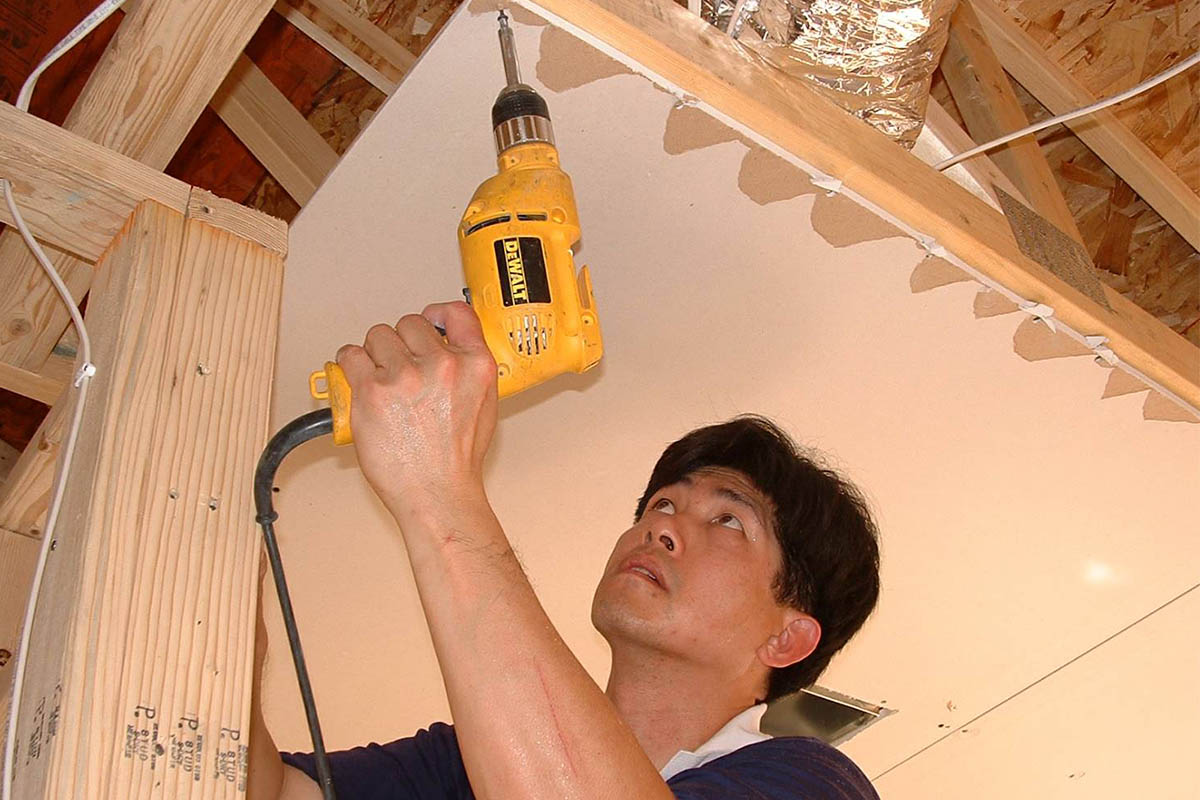
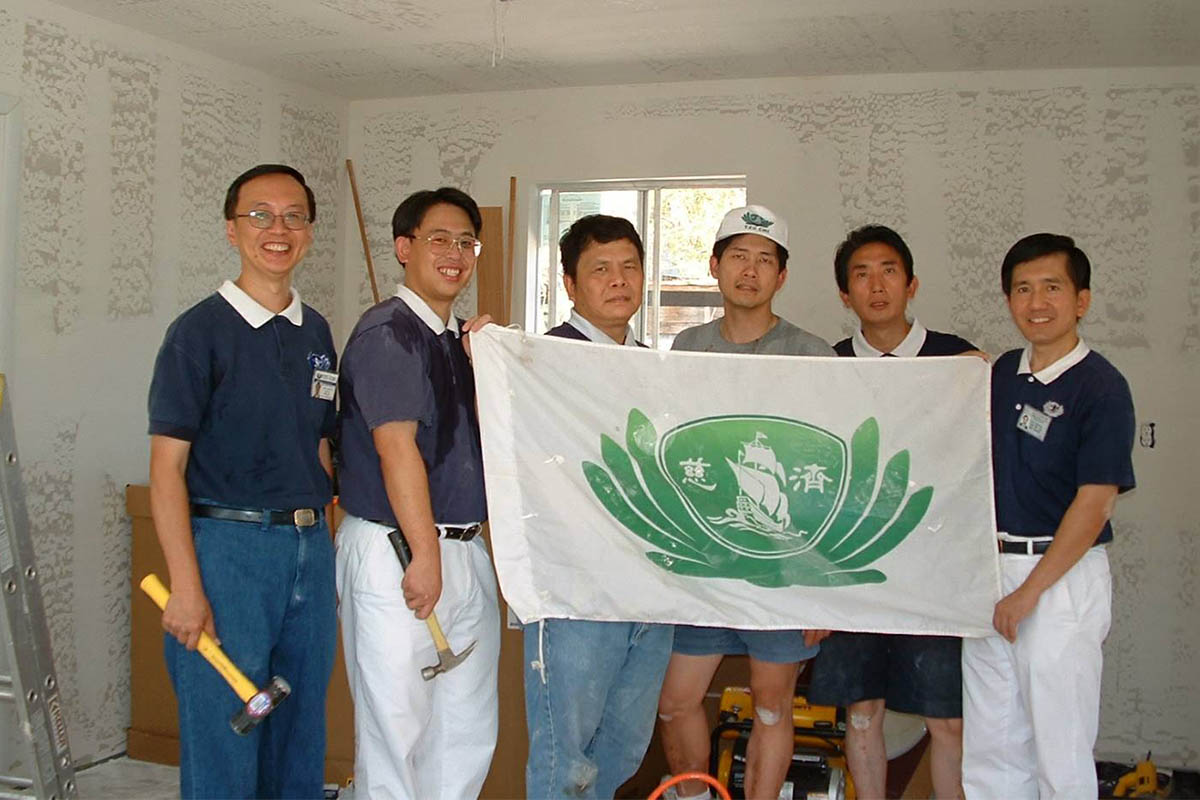
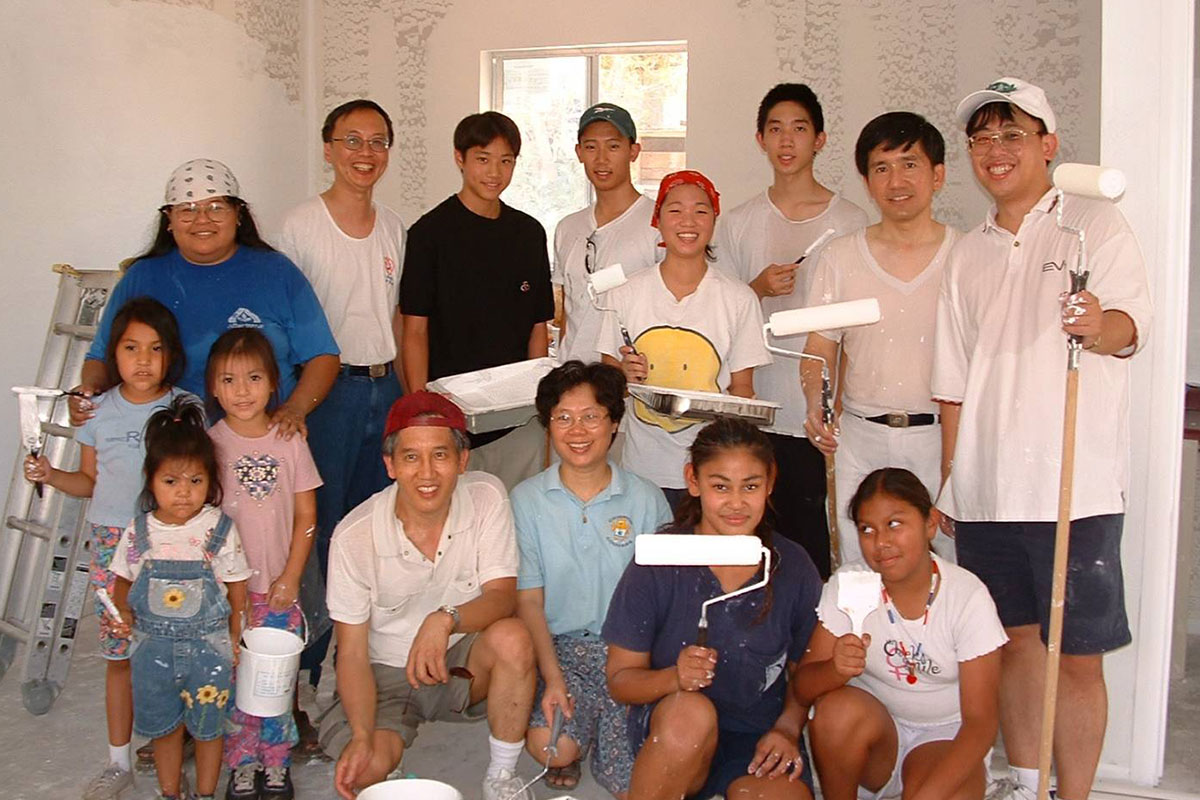
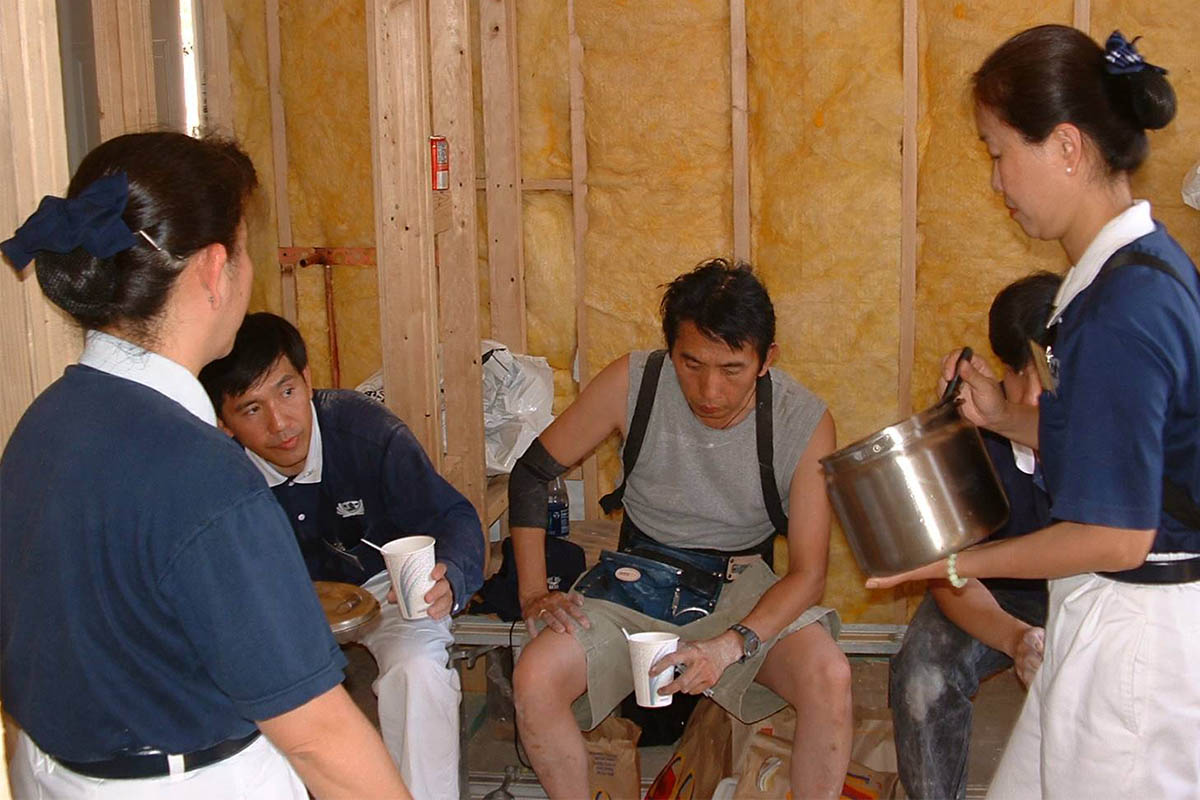
Finally, in August 2002, Tzu Chi USA completed construction of a 1,245 square foot house, featuring safe and durable concrete walls, clean white tiles, new bathroom fixtures, kitchen appliances, and closets. The project represented ten months of mindful hard work by Tzu Chi volunteers and the construction crew.
Many non-profit organizations have come out and said they would help us, but they all disappeared. What you have done has far exceeded our expectations. Not anyone can do this.
Granddaughter
On the day she moved in, she was wheeled inside by her granddaughter, with many Tzu Chi volunteers accompanying them. The grandmother was 81 by then and had few expectations from life. But as she entered her new house, she pulled off her sunglasses to marvel in disbelief at the sight before her eyes, looking round and round. She had never lived in such a beautiful home before.
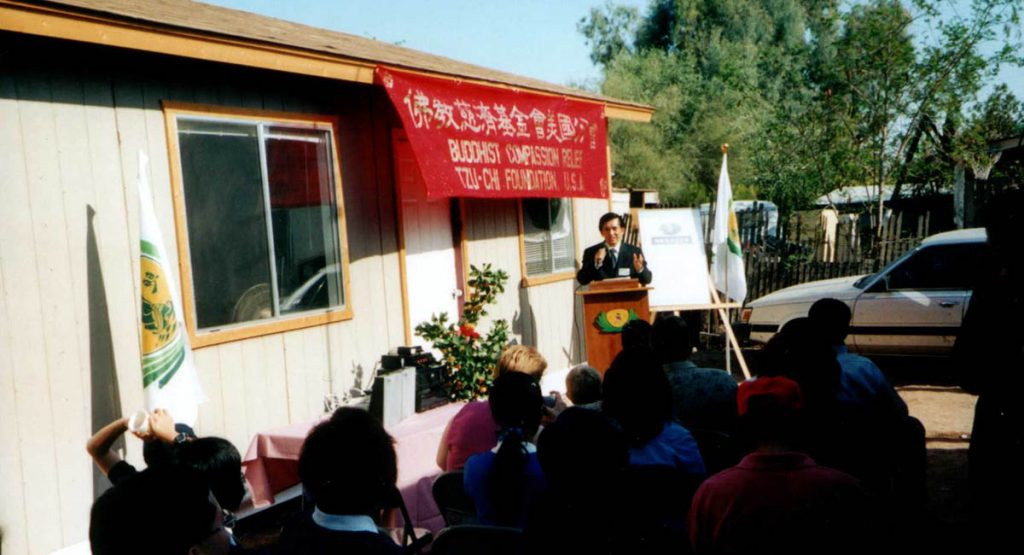
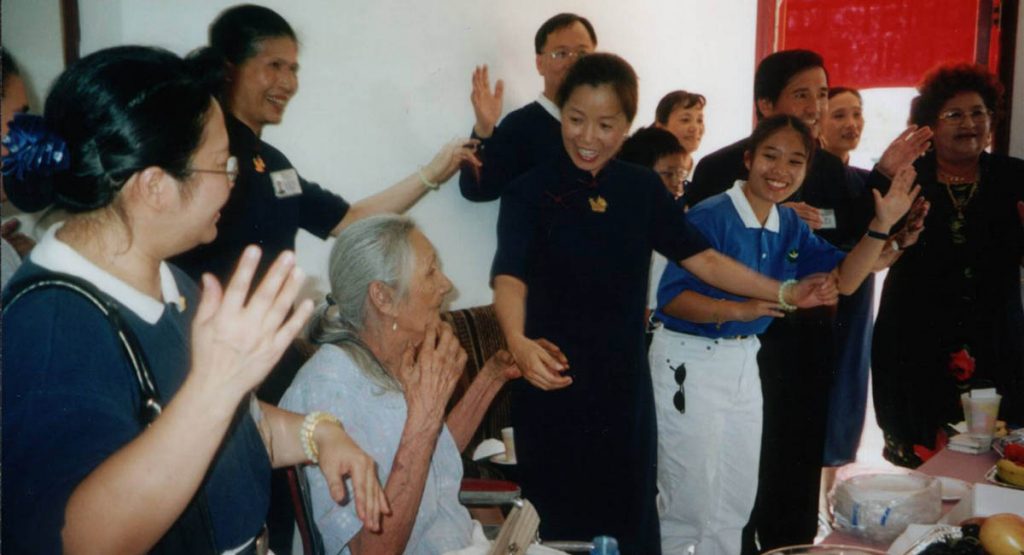
This project was supported by many in the community: The construction and air conditioning companies donated labor and materials, for instance. Local television stations also reported on the story, highlighting how many residents of the community had gladly donated to the cause.
Several years later, the elderly lady passed away, but Tzu Chi volunteers never forgot her, although they lost contact with the social worker who had introduced them. And, in 2020, Tzu Chi volunteers renewed their connection with the Pascua Yaqui Tribe as a result of the COVID-19 outbreak and the urgent needs it brought.
Renewing Tzu Chi USA’s Connection With the Pascua Yaqui Tribe
As the outbreak of COVID-19 began to spread, it led to panic buying that caused grocery stores to run out of food. In Guadalupe, the local food bank, heavily relied on by the Pascua Yaqui Tribe, many of whose members are underprivileged, also experienced shortages of supplies.
Alma Valenzuela, the social worker who contacted Tzu Chi USA’s Phoenix Service Center with a request for food assistance, didn’t know about the house that Tzu Chi had built for a member of the tribe. Her reaching out created a precious new bridge between Tzu Chi and the Pascua Yaqui Tribe.
When the volunteers at the service center learned that apart from a shortage of food, the tribe was also affected by a severe lack of PPE, they responded without delay. On April 17, 2020, they traveled to Guadalupe with a donation of 500 medical masks.
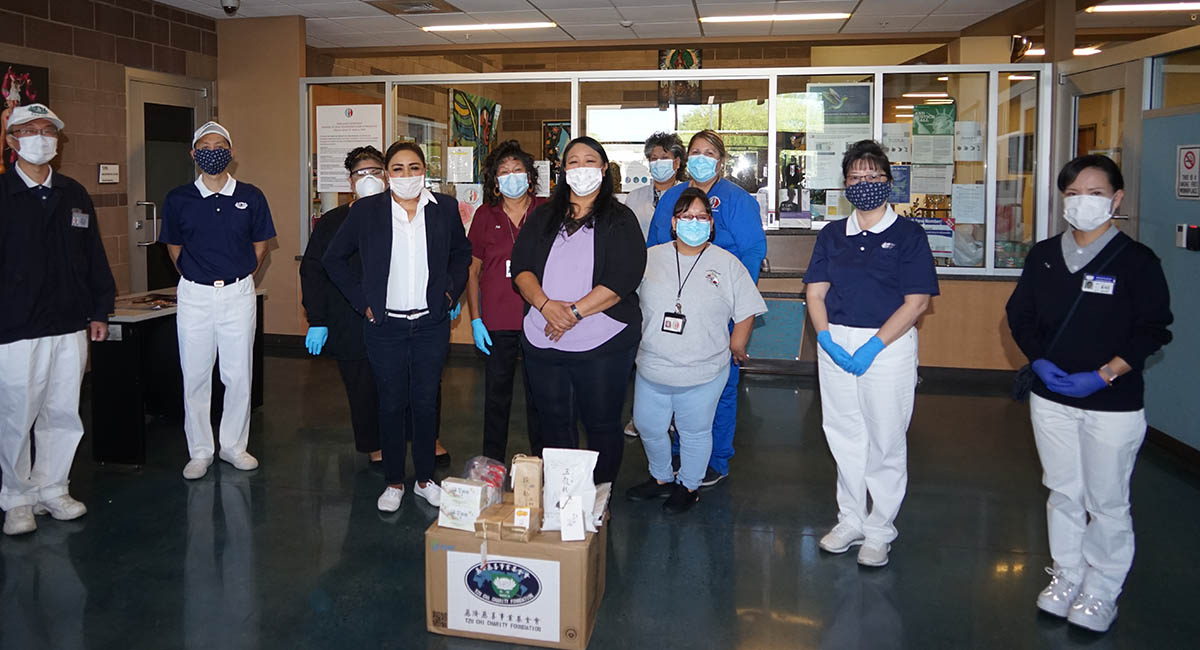
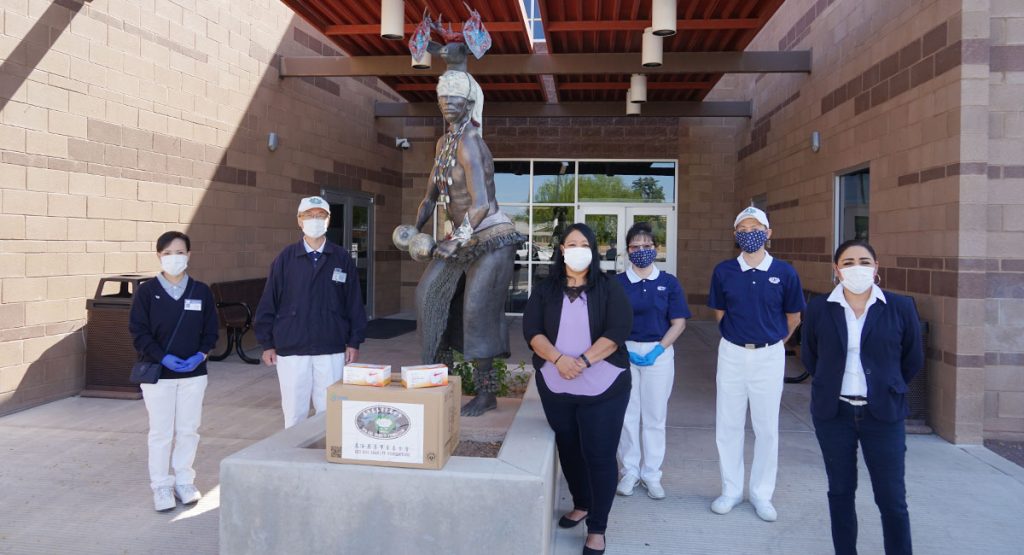
During the delivery of PPE, Tzu Chi volunteers also got a better understanding of the food shortage situation facing the tribe. For one, what they receive from the food bank generally consists only of dry goods; therefore, certain nutritional elements may be lacking. The volunteers decided that from now on, Tzu Chi will regularly provide fresh vegetables and fruit.
This story illustrates how Tzu Chi’s aid often leads to lasting connections with communities, ones that flourish and deepen with time. The volunteers on the team delivering the critical PPE were grateful that they could help members of the tribe stay safe at this challenging time.
Renewing Tzu Chi USA’s Connection With the Pascua Yaqui Tribe
As the outbreak of COVID-19 began to spread, it led to panic buying that caused grocery stores to run out of food. In Guadalupe, the local food bank, heavily relied on by the Pascua Yaqui Tribe, many of whose members are underprivileged, also experienced shortages of supplies.
Alma Valenzuela, the social worker who contacted Tzu Chi USA’s Phoenix Service Center with a request for food assistance, didn’t know about the house that Tzu Chi had built for a member of the tribe. Her reaching out created a precious new bridge between Tzu Chi and the Pascua Yaqui Tribe.
When the volunteers at the service center learned that apart from a shortage of food, the tribe was also affected by a severe lack of PPE, they responded without delay. On April 17, 2020, they traveled to Guadalupe with a donation of 500 medical masks.

